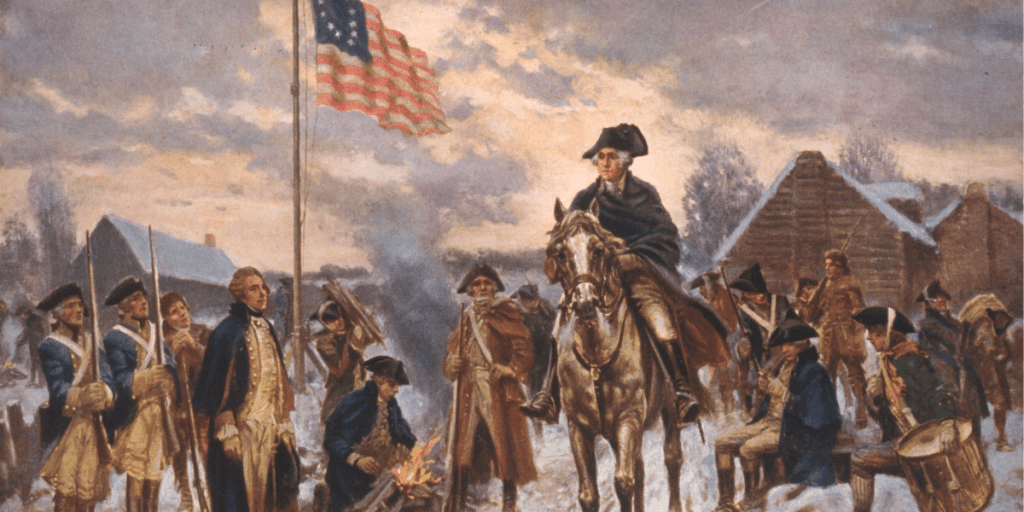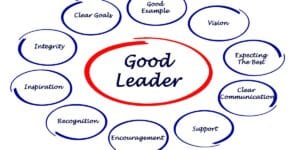The United States of America was born through the crucible of the American Revolution, with George Washington leading the nation through its tumultuous beginnings. As the country’s first president and a commander during the Revolutionary War, Washington’s leadership skills played a pivotal role in shaping the nation. This article delves into the timeless leadership qualities that defined Washington and how they continue to inspire and guide modern leaders.

Integrity and Moral Character
George Washington’s integrity was one of his most remarkable leadership traits. He earned the respect and trust of his soldiers and colleagues through his unwavering commitment to honesty and ethical behavior. In an age when political intrigue and corruption were rampant, Washington’s incorruptibility shone like a beacon. He was a man of his word, and his moral compass guided him through difficult decisions.
Modern leaders can learn from Washington’s commitment to integrity by prioritizing ethical behavior and leading by example. Doing so will create a foundation of trust with their teams, enabling them to work together effectively.
Vision and Strategic Planning
Washington was known for his ability to see the big picture and develop strategic plans accordingly. He envisioned a nation founded on principles of liberty, justice, and democracy, and he worked tirelessly to bring that vision to fruition. His ability to rally others around his cause, despite the odds, was a testament to his persuasive skills.
Today’s leaders should cultivate their vision and strategic thinking abilities to navigate the complex and rapidly changing world. By having a clear understanding of their organization’s goals and the best path forward, they can inspire and guide their teams to success.
Adaptability and Perseverance
Washington’s military campaigns during the Revolutionary War highlighted his adaptability and perseverance. Despite facing numerous setbacks, he consistently found ways to adapt and overcome challenges. His resilience and ability to adapt his strategies to the changing circumstances were instrumental in the eventual success of the Continental Army.
In the modern world, change is a constant, and leaders need to develop the ability to adapt to new situations quickly. By remaining resilient and open to new ideas, leaders can help their organizations navigate through uncertain times.
Humility and Self-Reflection
Despite his many accomplishments, Washington was known for his humility. He understood that he was not infallible and was willing to admit his mistakes. This humility allowed him to learn from his failures and continually improve as a leader. Additionally, Washington valued the input of his advisors and was willing to change his mind when presented with compelling arguments.
Modern leaders should embrace humility and self-reflection to recognize their weaknesses and learn from their mistakes. By seeking feedback from their teams and being willing to adjust their approach when necessary, leaders can continually grow and improve.
Empathy and Compassion
Washington demonstrated empathy and compassion throughout his life, both on and off the battlefield. He was known to care deeply for the welfare of his soldiers and took steps to ensure their well-being. Washington’s ability to empathize with others and show genuine concern for their well-being helped forge strong bonds with his troops and fellow patriots.
Empathy is a critical leadership skill in today’s diverse and globalized world. By taking the time to understand and care for the needs of their team members, leaders can create an inclusive and supportive work environment.
Decisiveness and Commitment
When faced with difficult decisions, Washington displayed unwavering decisiveness and commitment. He understood the importance of timely decision-making and was not afraid to make tough choices. Once a decision was made, he stood by it, demonstrating his commitment to seeing things through.
Leaders today can learn from Washington’s decisiveness by making informed decisions and standing by them. By displaying confidence in their choices and following through on their commitments, leaders can inspire trust and loyalty in their teams.
Effective Communication
George Washington was an effective communicator who knew the power of clear and concise messaging. He was able to inspire his troops and rally support from the public with speeches that were both passionate and well-structured. Washington also recognized the importance of active listening and sought input from his advisors to make better-informed decisions.
In today’s fast-paced world, effective communication is essential for leaders. By mastering the art of conveying information clearly and concisely while also being receptive to feedback, leaders can ensure their teams stay aligned and informed.
Delegation and Empowerment
One of Washington’s most notable leadership skills was his ability to delegate and empower others. As a military commander and later as president, he understood the importance of surrounding himself with competent individuals and trusting them to carry out their responsibilities. By delegating tasks and empowering his subordinates, Washington was able to focus on higher-level strategic planning and decision-making.
Modern leaders can learn from Washington’s example by trusting their teams to take on responsibilities and make decisions. This approach not only allows leaders to focus on strategic matters but also fosters a sense of ownership and accountability among team members.
Courage and Conviction
Washington’s courage and conviction were evident in his actions and decisions throughout his life. He was willing to take risks and make bold moves when he believed it was necessary for the greater good. His unwavering dedication to his principles and the cause of American independence inspired those around him to follow his lead.
Today’s leaders can benefit from Washington’s example by demonstrating courage and conviction in their actions. By staying true to their beliefs and values, leaders can inspire confidence in their teams and maintain a strong moral compass.
Dedication to Lifelong Learning
Throughout his life, Washington was dedicated to learning and self-improvement. He was an avid reader and constantly sought to expand his knowledge in various fields. His dedication to lifelong learning allowed him to grow as a leader and better serve his country.
In the ever-evolving modern world, the importance of lifelong learning cannot be overstated. Leaders who are committed to continuous self-improvement and open to new ideas will be better equipped to face the challenges of tomorrow.
Conclusion
George Washington’s leadership skills are as relevant today as they were during the founding of the United States. His integrity, vision, adaptability, humility, empathy, decisiveness, communication, delegation, courage, and dedication to lifelong learning are qualities that continue to inspire and guide modern leaders. By emulating Washington’s example, today’s leaders can navigate the complexities of the modern world and lead their organizations to success.











